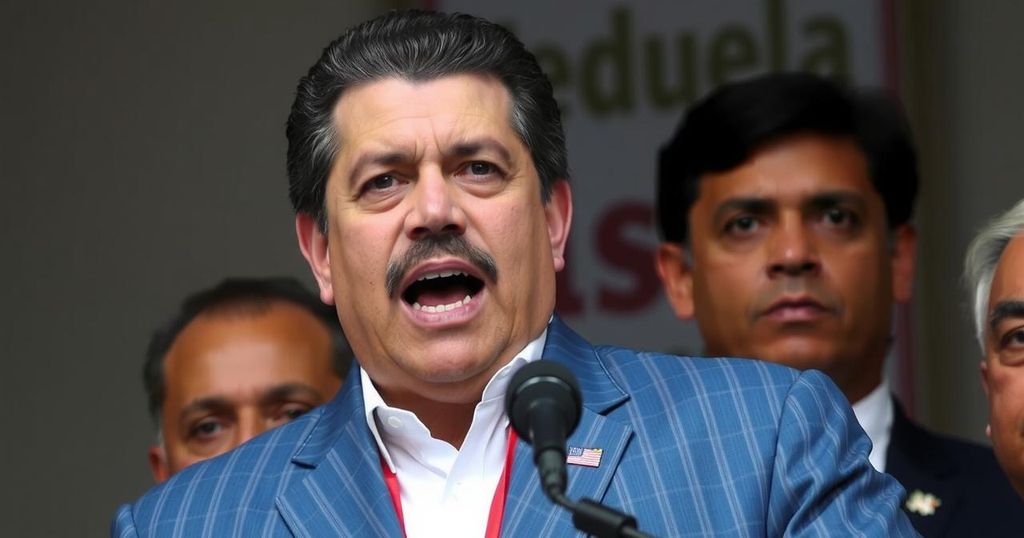Maduro Sworn in for Controversial Third Term Amid Electoral Disputes

Nicolás Maduro has assumed office for a third term in a controversial election deemed illegitimate by many. Despite widespread claims of an opposition victory by Edmundo González, Maduro’s government has suppressed dissent. International recognition of González as president-elect has added pressure on Maduro. Repression and protests continue, casting doubt on Maduro’s pledges for peace and democracy in Venezuela.
Nicolás Maduro was sworn in for a controversial third term as President of Venezuela amid significant disputes regarding the July presidential elections, which have drawn considerable international scrutiny. In his inauguration speech, he asserted, “The power granted to me by the Constitution has not been given to me by a foreign government or a gringo government… I come from the people.” While Maduro claims legitimacy, independent tallies suggest that opposition candidate Edmundo González actually won the election, leading several nations, including the United States, to recognize him as the true president-elect.
The election results announced by electoral authorities lacked transparency, stirring skepticism and prompting widespread protests against Maduro’s regime. The government reacted with force, resulting in the arrest of thousands, including high-profile opposition leaders, while Maduro seeks to consolidate his power. Amidst ongoing repression, González appeals for international support, seeking to assume office, though specific plans remain undisclosed. Maduro dismisses these efforts, labeling them as “fascist conspiracies” and has stated he will arrest González upon his return.
As Maduro’s term goes into effect, he proclaimed a commitment to a new era of stability and prosperity in Venezuela, stating, “I swear that this new presidential term will be one of peace, prosperity, equality and new democracy… I will keep my word.” Nevertheless, his historical record of electoral manipulations and the suppression of dissent undermines the credibility of his assurances. The nation remains deeply divided, and the political crisis appears set to continue without a resolution to the underlying issues.
Venezuela has faced severe political turmoil since Nicolás Maduro ascended to power in 2013. His administration has been marked by contentious elections and accusations of authoritarianism, including the jailing and harassment of political opponents. The recent presidential election, held in July, was particularly contentious, with widespread allegations of vote rigging and a lack of transparency in the electoral process. The recognition of Edmundo González as president-elect by various countries signifies the ongoing international concerns regarding the legitimacy of Maduro’s administration and the calls for democratic reforms in Venezuela.
Nicolás Maduro’s inauguration for a third term occurs in a climate of political crisis and divided national sentiment. While he attempts to assert his legitimacy and promises a new era of governance, the numerous allegations of electoral fraud and the continued suppression of dissenting voices raise serious doubts about his commitments. The international community’s recognition of Edmundo González as the true president-elect and his calls for support further highlight the urgent need for a resolution to Venezuela’s ongoing political strife.
Original Source: reason.com








